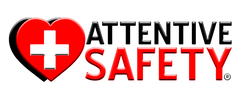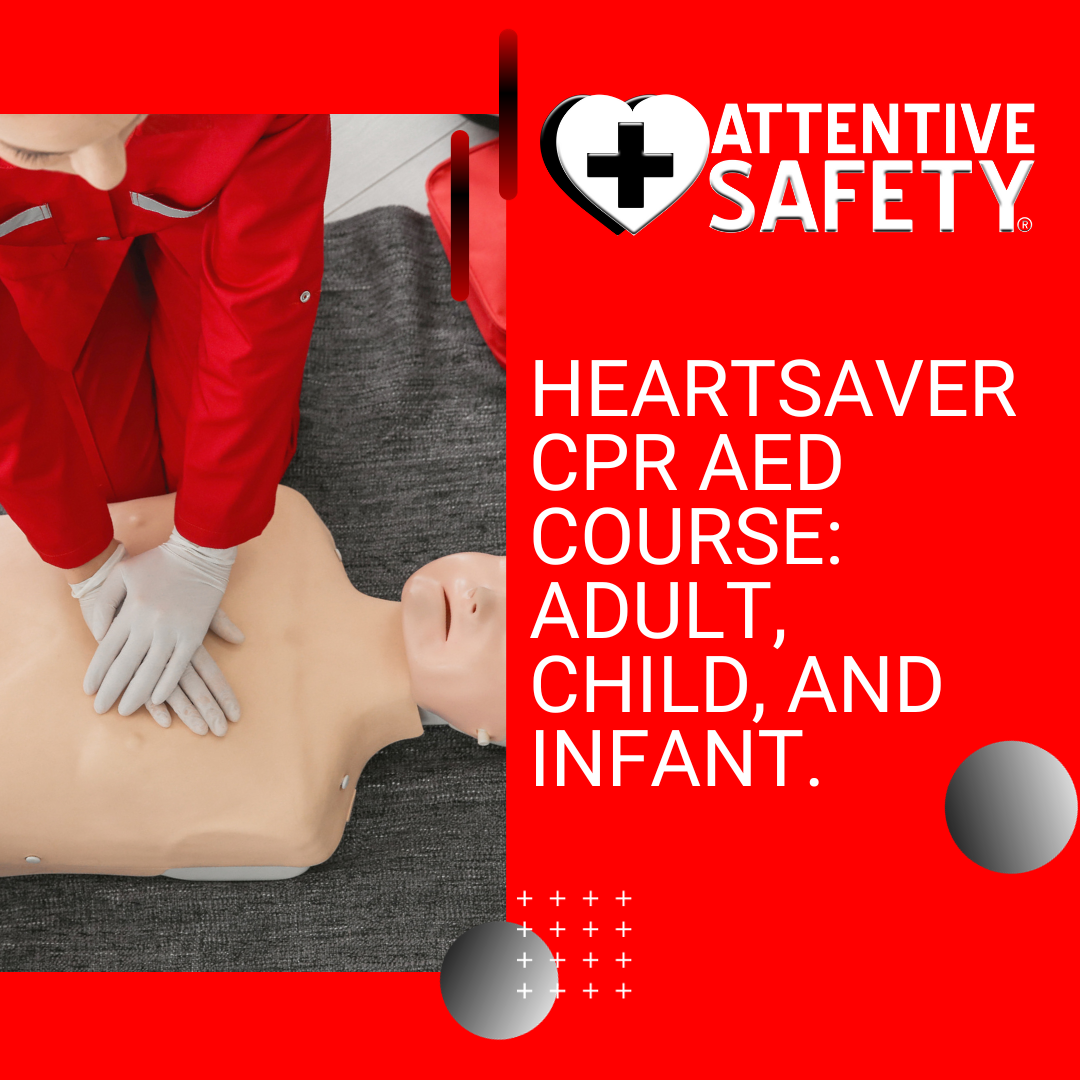Heartsaver CPR AED
Empower Yourself with Lifesaving Skills: Enroll in Attentive Safety’s Heartsaver CPR AED Course
|
|
Attentive Safety's Heartsaver CPR AED course is a life-changing opportunity for anyone eager to acquire vital CPR and AED skills. Perfect for laypersons, professionals with limited medical training, or those needing workplace certification, this course is your pathway to becoming proficient in emergency response techniques.
Key Features of the Course
Course Details
Registration and Payment
Course Completion Card On successful completion, receive the American Heart Association Heartsaver CPR AED Course Completion Card, valid for two years, demonstrating your commitment to lifesaving skills. Why Attentive Safety? At Attentive Safety, we are committed to providing you with the highest standard of training. Our skilled instructors, comprehensive course material, and practical sessions are designed to make you a confident first responder. Enroll Today! Don’t miss the chance to become a skilled lifesaver. Whether for personal satisfaction or professional requirement, our Heartsaver CPR AED course is your route to essential emergency skills. Attentive Safety – Where Learning to Save Lives is Our Priority. Enroll Now! |

